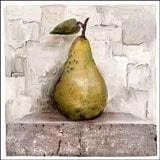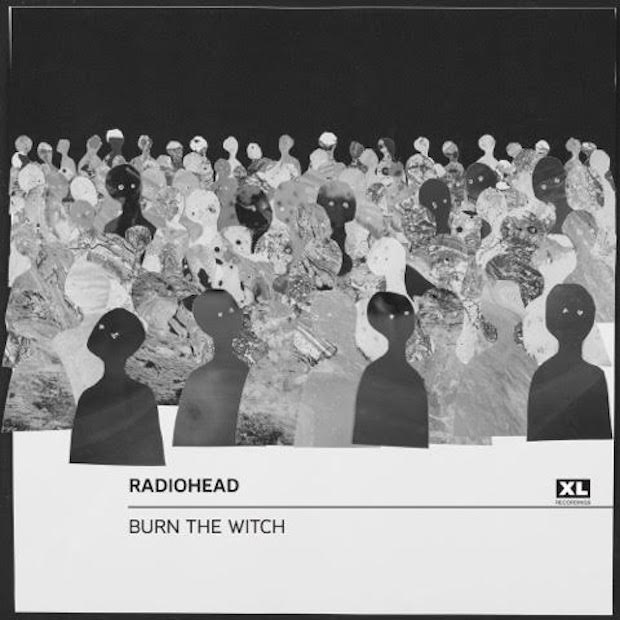Progarchives.com has always (since 2002) relied on banners ads to cover web hosting fees and all.
Please consider supporting us by giving monthly PayPal donations and help keep PA fast-loading and ad-free forever.
/PAlogo_v2.gif) |
|
Post Reply 
|
Page 123> |
| Author | ||
aldri7 
Forum Senior Member 
Joined: January 09 2013 Status: Offline Points: 114 |
 Topic: harmonic language in prog Topic: harmonic language in progPosted: January 31 2013 at 17:52 |
|
|
As I search through this site looking for new music, I'm constantly reminded that what I prefer to listen to is mostly dependent on the harmonic language that a band uses, the chords and scales, etc. If you have some basic music theory, you can then describe exactly what it is you like, and maybe connect with others that like music that uses the same language. and then, voila - new bands then became known to you (always my reason for starting new threads :))
For example, I love the Lydian mode. Thats the one with the sharped fourth (F in the key of C). One classic example of the use of this scale would be "Maria" from West Side Story. For prog bands that use this mode a lot, I'm looking for examples, but don't have too many yet. I also like major/minor shifts in the same key for example, shifting back and fourth between C major and C minor. Genesis did this a lot (The Music Box) and is probably the main reason why I have always loved their music. When you make this shift (thinking C again), its similar to shifting back an fourth between C major and, for example, A flat major. Pat Metheny built his entire song "Phase Dance" on that shift. Another great example of this which I just heard for the first time is the song "Inside" by the band Finn Arild. Finally, there is the intro to "I talk to the Wind" (King Crimson) - same shift. The harmonies pioneered by guys like Dave Stewart and ubiquitous in UK bands like U.K., Bill Bruford, and then later Allan Holdsworth are great too. Really cool uses of 11th, 13 chords, etc and frequent key shifts. And Chicago's horn section in the early years did likewise with chords like in the Intro to "does anybody really know what time it is") Keith Emerson built a lot of his work around stacked fourths. That opening left hand riff in Tarkus is all fourths... And then there are altered scales which John McLaughlin sometimes used on Birds of Fire. For atonality, of course there is Zappa. Jazz Fusion harmonies like those used by John Scofield are cool too. A lot of the harmonies used there are based on chord inversions where the 7th in particular (also 9th, 11th, etc) is in the base and so is dissonant against the other notes. Another guy with a unique harmonic language is Ralph Towner. But thats barely scratching the surface. I haven't seriously searched for new music since about 1985. And so I have a ton of catching up to do. And so what I notice is that with prog today, you have 8,000 bands while in 1985 they probably numbered in the low hundreds. But to find those using the harmonies like I mentioned above you have to wade through an awful lot of I, IV, V music. There are rewards in searching, though, like finding Thieves Kitchen and Sylvan which I did the other day. Maybe if others are inclined to play this game, we can put up some other prog bands based on their harmonic signatures. Unique signatures is what I am looking for. I think that it tends to be true that most bands stick to a particular language or two because those are the only ones that they emotionally connect to. It reminds me about how so much music in alt rock these days and, owing to Pink Floyd maybe, a lot of prog too is based on the minor scale with the melody hanging on the "re" (as in do, re, me..). In C, thats D. And then from there, you do as Pink Floyd did, you shift between the C minor triad and A flat major triad while hanging on that D. The emotional power of that D over the C minor gives the music a sadness which appeals to tons of listeners out there (including me). I can think of no other melodic note over a chord that packs that kind of emotional power outside of the raised fourth in the Lydian mode and maybe hanging on the "ti" (seventh) in the major keys. And then in a few months, maybe I can do more than just reference bands and music that is more than 25 years old, Sorry, but thats how long I have been away from popular music. Retirement does give you more free time to do the things you love... aldri7 Edited by aldri7 - January 31 2013 at 18:04 |
||
 |
||
aldri7 
Forum Senior Member 
Joined: January 09 2013 Status: Offline Points: 114 |
 Posted: January 31 2013 at 19:17 Posted: January 31 2013 at 19:17 |
|
|
and........since this is the third time now I've started threads in the hopes of finding new bands, I just got a hit that satisfied two of my "needs"...:)
Those two needs are for a female vocalist and harmonies like above :) the band - White Willow.. those scandinavians are at it again.....:) aldri7
|
||
 |
||
Icarium 
Forum Senior Member 

VIP Member Joined: March 21 2008 Location: Tigerstaden Status: Offline Points: 34050 |
 Posted: January 31 2013 at 19:29 Posted: January 31 2013 at 19:29 |
|
|
Steely Dan does some niffy stuff with scales and harmonies, to my on theory trained ears, and so does 10cc and Supertramp have some cool stuff i can show you some of them by Supertramp which i find to have cool harmonical chords
|
||
 
|
||
 |
||
Atavachron 
Special Collaborator 

Honorary Collaborator Joined: September 30 2006 Location: Pearland Status: Offline Points: 64349 |
 Posted: January 31 2013 at 19:53 Posted: January 31 2013 at 19:53 |
|
Good thread, hope you get some more responses |
||
 |
||
aldri7 
Forum Senior Member 
Joined: January 09 2013 Status: Offline Points: 114 |
 Posted: January 31 2013 at 20:07 Posted: January 31 2013 at 20:07 |
|
very true in the case of Steely Dan, which reminds me..... A cousin of the C major to A flat major shift is the C major to E flat major shift. Its very similar. Again, its also like a switch from C major to C minor in that the E goes from natural to flatted. Anyway, "Rikki don't lose that number" uses that shift in the refrain. Also, ELP uses it in "Abaddon's Bolero" every time the theme returns to the beginning.. aldri7 |
||
 |
||
aldri7 
Forum Senior Member 
Joined: January 09 2013 Status: Offline Points: 114 |
 Posted: January 31 2013 at 20:10 Posted: January 31 2013 at 20:10 |
|
|
also, can anyone recommend to me more prog using the Lydian mode and also the mode that starts on "E" (Can't remember the name of it right now...I love both...
aldri7
|
||
 |
||
aldri7 
Forum Senior Member 
Joined: January 09 2013 Status: Offline Points: 114 |
 Posted: January 31 2013 at 20:13 Posted: January 31 2013 at 20:13 |
|
yeah, your strings are tuned in fourths so that would be the same finger? :) Heh, heh.........(i shouldn't laugh) - some things on guitar are easier than on the piano, like key shifts, but not ELP, I guess. Which begs the question - if Keith had been a guitar player, would his music have sounded a lot different harmonically? :) aldri7
|
||
 |
||
Atavachron 
Special Collaborator 

Honorary Collaborator Joined: September 30 2006 Location: Pearland Status: Offline Points: 64349 |
 Posted: January 31 2013 at 20:19 Posted: January 31 2013 at 20:19 |
|
|
^ well you can use separate fingers but it's no easier than using one
|
||
 |
||
Polymorphia 
Forum Senior Member 

Joined: November 06 2012 Location: here Status: Offline Points: 8856 |
 Posted: January 31 2013 at 20:26 Posted: January 31 2013 at 20:26 |
|
|
Phrygian is the third mode.
Hoelderlin's "Rare Bird" is the first example of a prog song in Lydian that comes to (my) mind, though, doubtless, I'll think of others. Grizzly Bear isn't necessarily prog, but they're more recent and make a lot of use of the Lydian mode. On their newest record, "What's Wrong" uses it heavily. Can't think of any prog in Phrygian, though I may think of some. |
||
 |
||
Sumdeus 
Forum Senior Member 

Joined: October 23 2012 Location: SF Bay Area Status: Offline Points: 831 |
 Posted: January 31 2013 at 20:26 Posted: January 31 2013 at 20:26 |
|
|
i find that intro to Tarkus isn't that hard to play with just using one finger for all the frets like in a barre chord.
anyways on topic - i';ve never been a big fan of theory or being too concerned with scales and modes and all that, prefer to focus on sound and feeling. |
||
|
Sumdeus - surreal space/psych/prog journeys
|
||
 |
||
aldri7 
Forum Senior Member 
Joined: January 09 2013 Status: Offline Points: 114 |
 Posted: January 31 2013 at 20:27 Posted: January 31 2013 at 20:27 |
|
|
And I can't help but mention along the same lines the "magic" chord that was, I think, pioneered in rock by Jimi Hendrix. The chord has a name, but I can't recall it. The four notes are C, E, B flat, and E flat. Again, its a major/minor ambiguity, or blues scale thing where you have both a natural E and flatted E in the same chord.
Now go listen to The Inner Mounting Flame album by the Mahavishnu Orchestra - whats the first chord you hear on that album? Its that same chord.... aldri7
|
||
 |
||
Atavachron 
Special Collaborator 

Honorary Collaborator Joined: September 30 2006 Location: Pearland Status: Offline Points: 64349 |
 Posted: January 31 2013 at 20:33 Posted: January 31 2013 at 20:33 |
|
|
||
 |
||
infocat 
Forum Senior Member 

VIP Member Joined: June 10 2011 Location: Colorado, USA Status: Offline Points: 4671 |
 Posted: January 31 2013 at 20:34 Posted: January 31 2013 at 20:34 |
|
|
I have to say, I have no idea what you guys are talking about!

|
||
|
--
Frank Swarbrick Belief is not Truth. |
||
 |
||
aldri7 
Forum Senior Member 
Joined: January 09 2013 Status: Offline Points: 114 |
 Posted: January 31 2013 at 20:36 Posted: January 31 2013 at 20:36 |
|
I kind of agree when it comes to creating music, but when it comes to talking about it, how else do you describe to someone over the internet what it is specifically that you like? I can't hum it to you.....so I can either try and write it down or refer to some basic theory. So its useful in communicating so that you can find more of those sounds that you crave. Question - how is it that over the past 40 years or so the Lydian mode came to be used by Hollywood film composers every time they wanted to convey nostalgia? What is it about that mode that elicits feelings of nostalgia? aldri7 |
||
 |
||
Atavachron 
Special Collaborator 

Honorary Collaborator Joined: September 30 2006 Location: Pearland Status: Offline Points: 64349 |
 Posted: January 31 2013 at 20:42 Posted: January 31 2013 at 20:42 |
|
Edited by Atavachron - January 31 2013 at 20:43 |
||
 |
||
aldri7 
Forum Senior Member 
Joined: January 09 2013 Status: Offline Points: 114 |
 Posted: January 31 2013 at 20:42 Posted: January 31 2013 at 20:42 |
|
Hey, I really like this band! thanks for the recommendation. BTW - is that a major/minor shift in the song "Fata Morgana"? good stuff :) aldri7 |
||
 |
||
aldri7 
Forum Senior Member 
Joined: January 09 2013 Status: Offline Points: 114 |
 Posted: January 31 2013 at 20:56 Posted: January 31 2013 at 20:56 |
|
How the tritone is perceive can depend on the context. When used in the Lydian mode (sharped F over a C major), its emotionally very powerful but not in a way that evokes malevolence. Leonard Bernstein loved that mode and the tritone that occurs in "Maria" on the syllable "ree" as its sung in the beginning. He loved the way it resolved to the G a half step above. So did a lot of other people. On the other hand, using it in other contexts like Jimi Hendrix used it in Purple Haze I can see where the effect that it might have on you is different. If you use it just by itself without resolving it, its sort of anarchistic or angry sounding, like someone is jabbing you with a pitchfork. Was it the tritone that they used in the "Wizard of Oz" while the palace guards are singing while they march (o ree o, yo.....oh)? Ominous......the notes might have been A, C, E and G flat. The tritone notes would be C and G flat. But the way its scored (without resolving it) - yeah, I think the intent was to project that evil was lurking.. aldri7
Edited by aldri7 - January 31 2013 at 21:17 |
||
 |
||
Atavachron 
Special Collaborator 

Honorary Collaborator Joined: September 30 2006 Location: Pearland Status: Offline Points: 64349 |
 Posted: January 31 2013 at 21:00 Posted: January 31 2013 at 21:00 |
|
|
^ Good points, music is relative to the other music around it, but still the question is begged; why do certain melodies and chords, whatever the context, evoke a particular response? Is it a vibrational relationship with our ears and brain; Is it learned or automatic; etc.
|
||
 |
||
aldri7 
Forum Senior Member 
Joined: January 09 2013 Status: Offline Points: 114 |
 Posted: January 31 2013 at 21:13 Posted: January 31 2013 at 21:13 |
|
I have wondered that with respect to the Lydian mode and nostalgia, because nostalgia is not something that you can easily define. Its not an emotion really. But anyway, to find the answer, maybe in this case its subjective and based on the experiences of those that came of age at a certain time and place back in the 50's or so - and then went on to compose music for film. If at some point growing up they were exposed to that mode, then hearing it now might tend to elicit nostalgia. But for someone growing up in a different time and place, I don't see how they would tend to make that connection. Probably the biggest mystery then is why a minor third is considered "sad" while a major third is "happy". This seems to be pretty universal, and so I wonder if it is a vibrational thing - I'm guessing a major third is more consonant i.e. easier on the ears, and so when they hear a minor third, the ears wants to convert it or resolve it to a major third which it can't. Because it can't, the effect on you, the owner of those ears, is sadness :) Its a little like unrequited love, maybe. With the minor third, there is a little bit of tension. So near but so far away.... aldri7 Edited by aldri7 - January 31 2013 at 21:16 |
||
 |
||
Atavachron 
Special Collaborator 

Honorary Collaborator Joined: September 30 2006 Location: Pearland Status: Offline Points: 64349 |
 Posted: January 31 2013 at 21:23 Posted: January 31 2013 at 21:23 |
|
Edited by Atavachron - January 31 2013 at 21:25 |
||
 |
||
Post Reply 
|
Page 123> |
| Forum Jump | Forum Permissions  You cannot post new topics in this forum You cannot reply to topics in this forum You cannot delete your posts in this forum You cannot edit your posts in this forum You cannot create polls in this forum You cannot vote in polls in this forum |